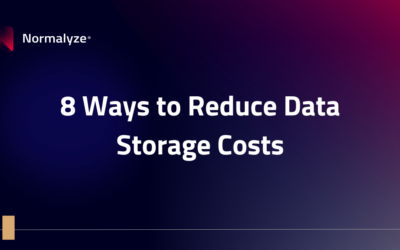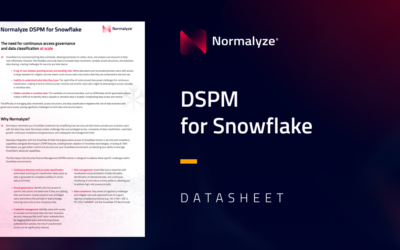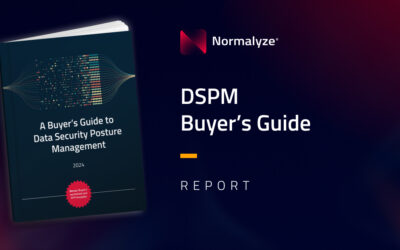Cloud Data Security, a new study by TechTarget’s Enterprise Security Group (ESG), has examined challenges of securing cloud data. ESG surveyed 387 IT, cybersecurity, and DevOps professionals who evaluate, purchase, test, deploy, and operate hybrid cloud data security technology products and services at organizations in North America. Normalyze is a co-sponsor of this study. We invite you to read ESG’s eBook about the entire survey; download it here.
This blog summarizes key points for the survey’s first major finding: Data is shifting to public clouds ahead of organizational readiness to secure it.
Data, Including Sensitive Data, Continues the Long-term Migration to Public Cloud Platforms
The first finding by ESG documents what most of us are seeing in modern environments: As a result of digital transformation and remote work, more and more data is being sent into the cloud. Startups and outliers are all-cloud, but even organizations with legacy on-premises data centers are sending as much as half or more of data into public cloud services. But you already knew that! The study’s particular value is helping us understand the sensitive data in public clouds.
The amount of sensitive data in public clouds is beginning to pose significant risks of loss or exposure. ESG found that 16% of respondents have more than 40% of their organization’s data on public cloud services categorized as “sensitive.” This level of exposure is beginning to soar, with almost half of respondents (45%) expecting they’ll hit this mark within 24 months.
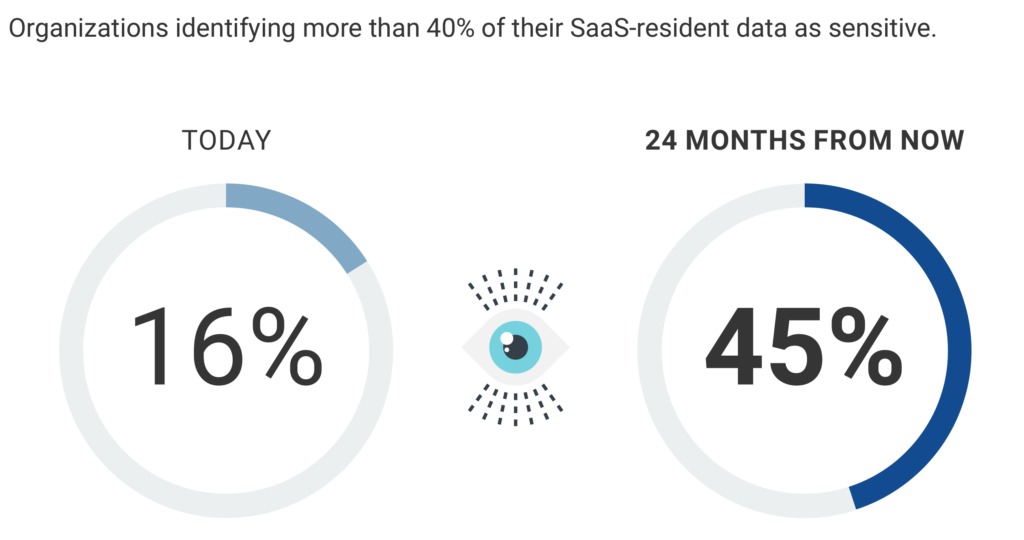
The Vast Majority of Enterprises Have Critical Cloud-resident Sensitive Data
At Normalyze, we obsess about risks of losing sensitive data in cloud data stores, and the ESG study adds fuel to the urgency of keeping a tight watch over these assets and protecting them from compromise. One area examined by ESG was data stores used by organizations for business analytics and machine learning. For modern organizations, these activities require the use of massive cloud data stores: data lakes, data warehouses, and the newer concept of data lakehouses for smarter analytics.
Get ready for a shocker: ESG reports almost all respondents (86%) have cloud stores with sensitive data. One in three respondents (32%) say the sensitive data in cloud stores is critical to their business.

Public Cloud Security Is Not Keeping Pace with Data Security Requirements
Awareness of sensitive data in cloud stores is just a piece of the equation for keeping it secure. Organizations also need appropriate security controls to ensure safety of the data. It appears, from ESG’s study, that there is substantial room for improving this posture.
While doubts about the general state of cloud data security continue to persist, the most concerning statistic from ESG research is risks to sensitive data. Six out of ten respondents (59%) suspect more than 30% of their data stores using IaaS and PaaS public cloud services have inadequate security controls.
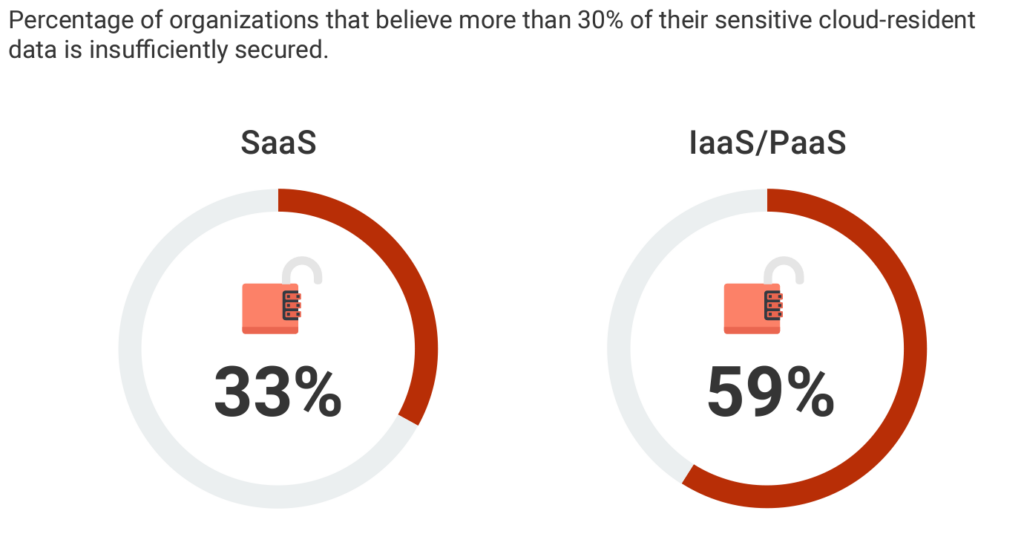
The scope of this risk is even more concerning. More than three out of four respondents (77%) say sensitive data resides in more than one IaaS/PaaS platform. This common use of multiple platforms is an Achilles heel for security teams because each provider typically uses its own security controls. Monitoring of sensitive data can be difficult to centralize and automate due to non-integrated security controls for various public cloud services.
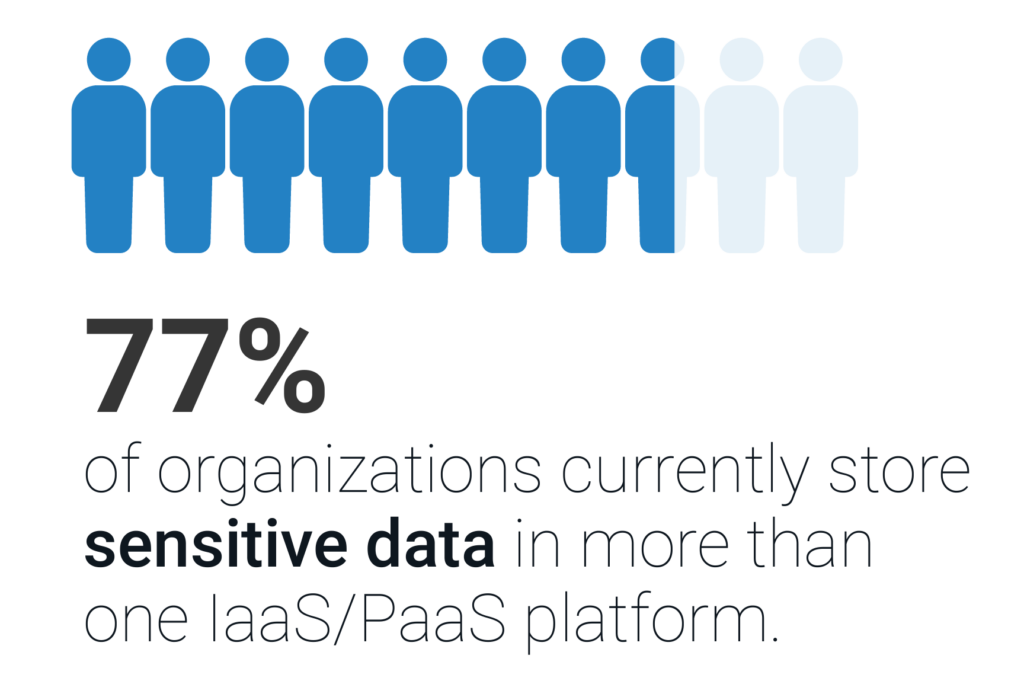
Our next blog in this series will take a deeper look at ESG’s second major finding, which explores multiple causes of cloud data loss. Meanwhile, if you’d like to skip ahead and read all of ESG’s major findings, you can download the eBook here.
What’s next? Experience data-centric posture management in action with Normalyze Freemium. Or read the Buyers’ Guide.

